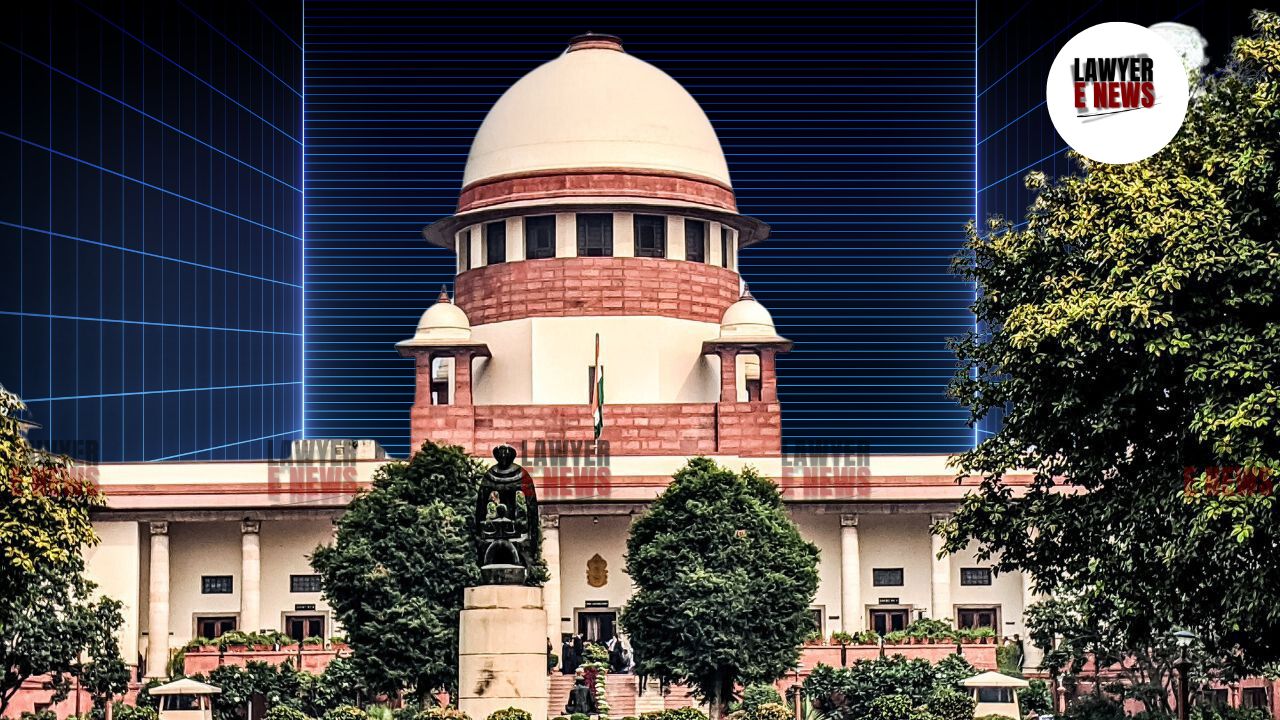-
by Admin
15 February 2026 2:36 AM



Misuse of Section 498-A IPC in Matrimonial Conflicts Must Be Prevented: Allegations Unsupported by Evidence, Proceedings Quashed - Supreme Court of India quashed an FIR under Sections 498-A, 312, 313, and 34 of the Indian Penal Code (IPC), 1860, against the appellants (parents-in-law of the complainant) and ruled that the allegations of cruelty and forced miscarriage were vague, unsubstantiated, and lacked prima facie evidence.
Supreme Court observed:
"Vague and omnibus allegations, without specific and particularized evidence, cannot form the basis for criminal prosecution under Section 498-A IPC. The proceedings, in this case, are manifestly attended with mala fides and abuse of legal process."
The Supreme Court held that the allegations of cruelty under Section 498-A IPC against the appellants were vague, lacked specificity, and did not satisfy the essential ingredients of the offense. The complainant alleged that the appellants harassed her for failing to produce a male child and instigated their son to abuse her. However, no precise incidents or roles of the appellants were detailed in the FIR.
The Court emphasized:
"A mere omnibus statement that cruelty was inflicted because the complainant could not produce a male child, without any specific instance or evidence, does not attract the ingredients of Section 498-A IPC."
Referring to its earlier judgment in Dara Lakshmi Narayana v. State of Telangana (2024 SCC OnLine SC 3682), the Court reiterated that vague allegations unsupported by precise details cannot sustain criminal prosecution in matrimonial disputes.
The complainant further alleged that the appellants coerced her into consuming poisoned food, leading to a miscarriage. However, medical evidence presented in the chargesheet revealed that the miscarriage was caused by abortion pills, with no indication that the pills were administered by the appellants.
The Court noted that the complainant failed to establish:
That the appellants were aware of her pregnancy.
That they had administered or coerced her into consuming abortion pills.
It held:
"There is no evidence to link the appellants to the miscarriage. A mere allegation that they brought poisoned food without any supporting material is insufficient to make out an offense under Sections 312 or 313 IPC."
The Court observed that the FIR, lodged in November 2018, was significantly delayed, as the alleged incidents occurred in 2016. Notably, the complainant had initiated divorce proceedings in 2018 but did not mention the allegations of cruelty or miscarriage in her notice of divorce.
The Court concluded that the FIR was filed as an afterthought and inferred ulterior motives, stating:
"The timing of the FIR, filed months after the divorce notice and two years after the alleged incidents, indicates a mala fide intent to pressurize the appellants during personal discord. The complainant's explanation that she refrained from filing the complaint earlier to avoid spoiling marital relations is unconvincing."
The Bombay High Court had dismissed the appellants' plea under Section 482 of the Code of Criminal Procedure (CrPC) to quash the FIR, holding that the allegations should be tested at trial. The Supreme Court, however, ruled that the High Court failed to apply the principles established in State of Haryana v. Bhajan Lal (1992 Supp (1) SCC 335), which outline the circumstances under which an FIR can be quashed.
The Court held:
"When the allegations, even if taken at face value, do not disclose the commission of an offense, the High Court should exercise its inherent powers under Section 482 CrPC to quash the proceedings. To allow prosecution based on such vague and improbable allegations would result in the abuse of legal process."
The Court reiterated its concern over the misuse of Section 498-A IPC in matrimonial disputes, cautioning against the tendency to implicate family members of the husband without substantive evidence.
It observed:
"There has been a growing tendency to misuse provisions like Section 498-A IPC as a tool to unleash personal vendetta against the husband and his family. Courts must exercise caution to prevent harassment of innocent family members and discourage abuse of legal provisions."
The judgment cited Dara Lakshmi Narayana and Jayedeepsinh Pravinsinh Chavda v. State of Gujarat (2024 SCC OnLine SC 3679), emphasizing that cruelty under Section 498-A must be supported by specific and credible evidence.
Supreme Court's Order
The Court allowed the appeal and passed the following directions:
The judgment of the Bombay High Court dated January 23, 2020, dismissing the application under Section 482 CrPC, was quashed.
FIR No. 339 of 2018 and all subsequent proceedings arising from it were quashed.
This landmark judgment underscores the need for caution in prosecuting matrimonial disputes, ensuring that criminal proceedings are not misused as a means of harassment. By quashing the FIR, the Court reaffirmed the principle that vague and unsubstantiated allegations cannot sustain criminal prosecution and emphasized the need to prevent abuse of legal provisions like Section 498-A IPC.
Date of Decision: December 20, 2024
